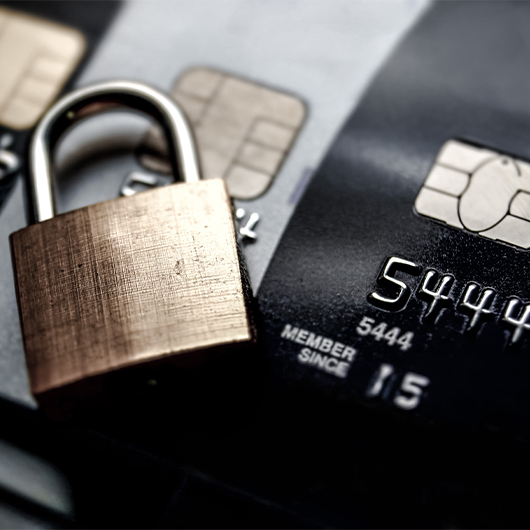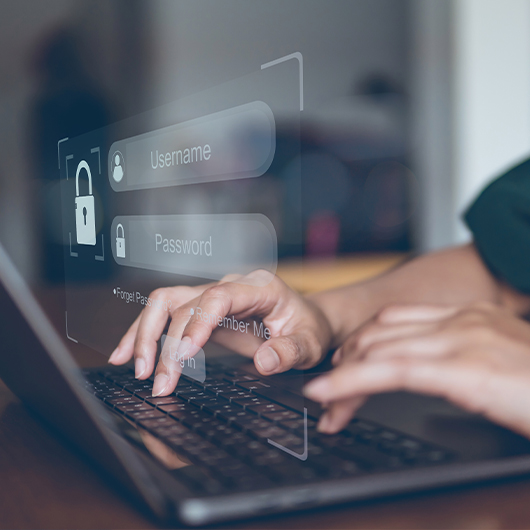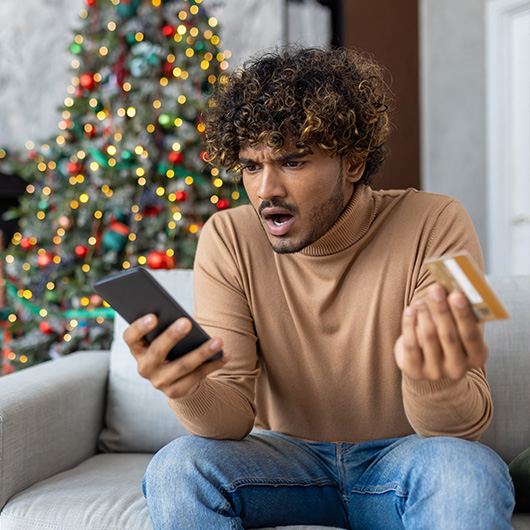Tips for Protecting Yourself from P2P Payment Fraud
Tips for Protecting Yourself from P2P Payment Fraud
P2P (peer-to-peer or person-to-person) payments are becoming increasingly popular, as people discover how easy it can be to split costs for dinner, chip in on a gift or pay a roommate for their share of the utilities using an app such as Zelle®, Venmo or Cash App. Sending direct, immediate electronic payments from one individual’s account to another went mainstream during the pandemic, when people began relying on P2P apps as a convenient, contactless method of exchanging funds.
If you use a P2P app, though, it’s important to understand that you need to exercise caution. Scammers bilk people out of money every day by conning them into believing they’re someone they’re not, or that they are a reputable entity selling goods or services. Unfortunately, once you’ve transferred money to another person, even if that person tricked you to do so, there are no do-overs: The money is spent, as surely as if you had handed cash to the person on the other side of the transaction.
How to Protect Yourself from P2P Fraud
Safeguarding your finances from P2P fraud means adhering to safe practices when you use your app. Here are some steps you can take:
- Send money only to people you know and trust, and make sure you have their correct username, email or phone number to make the transfer.
- Update your security settings to enable two-factor authentication or other security features on the P2P app.
- Avoid buying or selling goods from people or companies you don’t know using a P2P payment platform.
- Create strong, unique passwords for your financial accounts and change them frequently.
- Secure your smartphone so that a PIN, facial recognition or fingerprint is required for use.
- Always confirm that the money transfer has been completed with the intended recipient.
- Familiarize yourself with common popular scams so you can avoid them.
Common P2P Scams to Watch Out For
P2P fraudsters are always coming up with new scams, but there are several that are used repeatedly to cheat people out of their money. Watch for these and other suspicious activities as you work to protect yourself from P2P fraud.
- Sweepstakes scams. A classic scam informs you that you’ve won a prize but that you need to send a payment to collect your winnings. That payment will go right into the hands of the scammer.
- Romance scams. Posing as someone looking for love on a dating site, a fraudster may build an online relationship, con the other person into sending money and then disappear from the site.
- A stranger posing as a friend. A scammer may use a fake or compromised email address or profile to pretend to be someone you know. They can create a fake email address that’s so close to your friend’s you won’t notice (omitting one letter, for example), create a fraudulent account using your friend’s photo and a username that may seem to fit, or take over your friend’s actual email account or profile by fraudulent means. Always be sure that requests are legitimate and that you are directing them to the right person.
- Requests for charitable donations. A scammer may pose as a representative of a charitable organization and ask you to donate funds through a P2P payment. Before sending any donation, verify details of the nonprofit, including accepted payment methods, by checking their official website.
- Unauthorized-payment notices. An email or a text may look like it’s from your bank, but it tells you that you need to clear up some unauthorized activity on your account by sending a P2P payment. A bank would never make such a request.
- Get-rich-quick schemes. If it seems too good to be true, it most likely is. This applies to communications promising easy money — for example, “If you send $100, you will be paid back $1,000 next week just for getting five more people to join our group.”
- Calls asking for immediate payments. Any phone call allegedly from a government agency or credit card company representative who pressures you to send money immediately should be approached cautiously. Excuse yourself from the call so that you can reach out directly through the company’s or agency’s official phone number (check the website) to verify the legitimacy of the call.
Knowing how to recognize and avoid fraud attempts is important because consumer protection law considers P2P transactions to be authorized transactions — money transfers you have chosen to put into motion. When you send money to a fraudster, or you accidentally direct funds to the wrong person, that mistake is on you; your bank or the P2P service will not reimburse you for the error. The Consumer Financial Protection Bureau says the P2P payment service may be responsible for crediting your account for the loss only in the event of your phone being stolen or your P2P account was hacked and another person initiated the transaction.
What to Do if You’ve Become a Victim of P2P Fraud
If you realize that you’ve sent funds to a scammer or you find that unauthorized payments have been made against your account, notify the P2P service provider for next steps, and file a report with your local police department, as well as the Federal Trade Commission. Reports like yours can help the FTC and other law enforcement agencies fight fraud.
Zelle® and the Zelle® related marks are wholly owned by Early Warning Services, LLC and are used herein under license.
This article is for general information purposes only and is not intended to provide legal, tax, accounting or financial advice. Any reliance on the information herein is solely and exclusively at your own risk and you are urged to do your own independent research. To the extent information herein references an outside resource or Internet site, Dollar Bank is not responsible for information, products or services obtained from outside sources and Dollar Bank will not be liable for any damages that may result from your access to outside resources. As always, please consult your own counsel, accountant, or other advisor regarding your specific situation.
Posted: October 17, 2022




